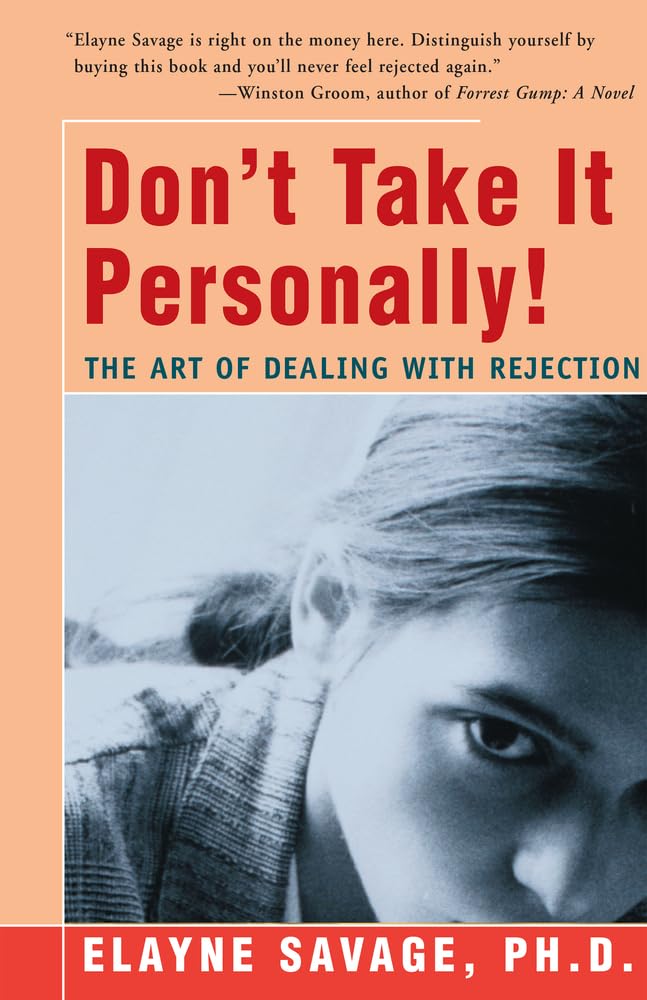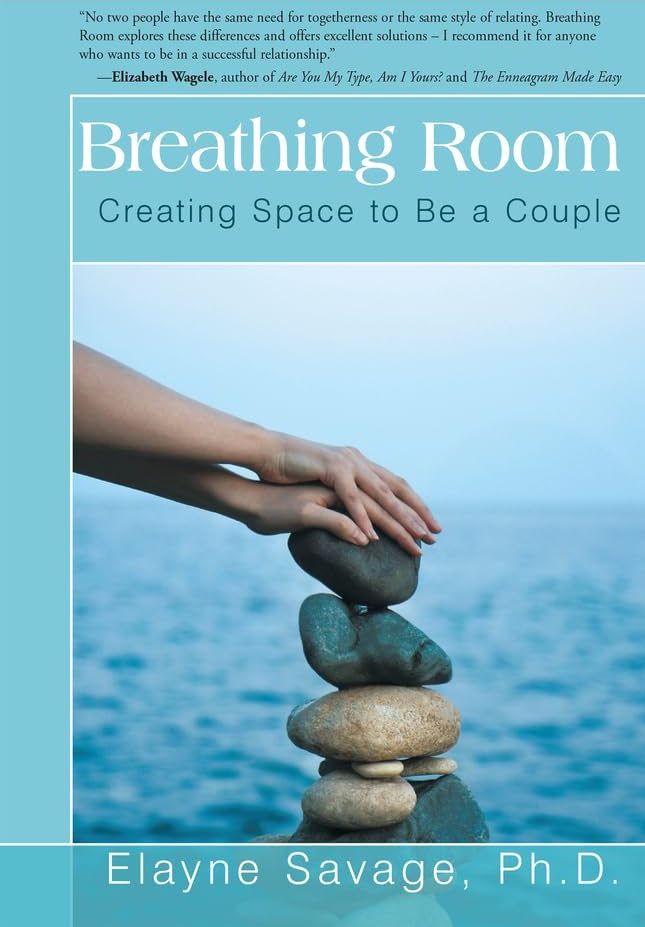Confessions of an Overly Responsible Personality
January 2010
By Elayne Savage, PhD
People of good will come together in wondrous ways as they respond to disasters like the devastating Haitian earthquake.This outpouring of support and financial aid is a marvelous example of social consciousness.
And yet, there are also lively debates in editorials and by the talking heads questioning limits of our responsibility to other nations.
So, I've been thinking a lot about personal responsibility.
What does it mean to be personally responsible? What forms can it take? How does it develop? I'm more aware than ever of my long-time tendency to feel overly responsible. Even in every day situations that have little to do with me, I tend to feel responsible and take it to heart. You might say I'm taking it personally.
There are times as I watch something unpleasant happening to someone. I catch myself thinking, "What could I have done to prevent this from happening?" or even "Did I do something to cause this to happen?"
A reality check with common sense tells me, "Of course not." And yet, in spite of knowing this, those awful 'shoulds' and 'ought-tos' start creeping in.
I think of all the times I've head sad or bad news and responded with, "I'm sorry." As I think more about it, 'sorry' is an apologetic word. Is this another instance where I'm feeling responsible for the situation when it isn't my fault? Lately I've been more mindful about saying "I'm sorry to hear that" which removes the apology factor.
Thank goodness the thoughts only hang around for a moment or so these days. I remember when they used to consume a great deal of time, space and energy. It didn't take much for me to feel overly responsible for things that happened around me. Without thinking I'd be jumping in to rescue the situation.
Do you, too, find yourself taking on this kind of responsibility? Do you blame yourself and take it personally?
Blaming ourselves is not the same as taking responsibility for our actions All too often we confuse the two.Taking responsibility is standing on your own two feet. Blaming is leaning on someone else to take responsibility.
You can take responsibility for your response to the event, but the event itself is usually out of your control. It's this out of control feeling that leads to feeling overly responsible.
Feeling Helpless
We often mobilize by rescuing. Somehow rescuing helps us feel like we are in control of an out-of control situation.
So to not feel so helpless. we may take responsibility in a situation.
Some of us learned the rescuing role growing up. Maybe our childhood job description was 'The Responsible One,' 'The Capable One,' 'The Go-between,' 'The Placater,' 'The Mediator,' or 'The Family Translator.'
Truth be told, some of us learned responsibility in inappropriate ways. Boundaries were transgressed. Maybe you were handed the responsibility of caring for younger siblings. Or you started taking care of parents who were supposed to be taking care of you. Or you acted as the go-between. Or you tried to stop the fighting between your parents.
One woman describes jumping up on the coffee table and at the top of her voice reading her 'Happy Family Book' each time her parents started yelling.
We were 'parentified children' who filled up the large, empty spaces in our family.There was no room to be children because we were expected to function as adults. Boundary confusion reigned.
Read more about personal boundaries in "Don't Take It Personally! excerpts from Amazon. Chapter 11 addresses this:
http://www.amazon.com/Dont-Take-Personally-Dealing-Rejection/dp/0595255752/ref=sr_1_1?ie=UTF8&s=books&qid=1264392645&sr=8-1#reader_0595255752
and in 'Breathing Room – Creating Space to Be a Couple:
http://www.amazon.com/Breathing-Room-Creating-Space-Couple/dp/1572242213/ref=sr_1_1?ie=UTF8&s=books&qid=1264483012&sr=8-1#reader_1572242213
Keeping Everyone Safe is a Big Job
Some of us grew up with the idea if we didn't do our job right, our family might fall apart.
We believed everyone depended on us. I've heard many stories from clients about how they would lie in bed in bed at night worrying about how to best take care of everyone, keep them safe and make sure the family ran smoothly day-to-day. What a huge responsibility!
Can you see how being the responsible one in the family contributes to our sense of self worth and becomes our identity? This was how we receive validation and we carry this identity into the outside world.
Sometimes it backfires.
I'm remembering a kindergarten experience when I felt compelled to tell the teacher that a classmate refused to come in from recess. I was worried about her and was sure the teacher would be grateful for this information.
What a shock when my teacher accused me of tattling and told me to mind my own business. I honestly thought it was my business. After all, at home it was my job to be 'the responsible one' and make sure everyone was safe. Even back then I was overdoing the responsibility thing.
Job Descriptions Follow Us Into Adulthood
As we carry this identity into our adult years it becomes burdensome and leads to some dilemmas:
How responsible should we be for others' well-being?
When does this cross over to being 'too responsible?'
Do we ever have a moral obligation?
An ethical one?
Do we feel responsible because we are really feeling guilty?
What are the personal boundaries here? It's so easy to get confused.
How can we be compassionate yet honor the autonomy of others?
How can we recognize and respect our own comfort level?
Here is what works for me. I make an effort to 'walk alongside myself.' I notice when the urge comes over me to be ultra-responsible. I can be mindful of times when I gravitate to the 'Responsible One' role. By watching myself do it, I can then choose how involved I want to be. Or not.
Being able to make choices is key. I can consider what works best for others and what works best for me. Then I can choose which other road I want to take. By making a choice I feel in control of the situation rather than allowing it to control me.
Our Own Needs Get Lost
Most kids grow up thinking they don't have choices. They feel responsible to hold the family together. And their own needs get lost in the process. They are good candidates for developing into codependent adults who:
– feel our needs don't matter.
– forget they have needs because they are so busy looking after the needs of everyone else.
– get really good at anticipating needs of family members. They are especially adept at reading others' minds, as well.
Unfortunately, as adults, we get really disappointed when we expect others to be as skilled at reading our minds. And disappointment feels like rejection. And we know that doesn't feel good.
I'd love to hear your stories about how you deal with over-responsibility. And whether recognizing the ability to make choices can make a difference for you.
Until next time,
Elayne
Elayne Savage is the author of ground-breaking books published in 9 languages.
You can order books and CDs directly from my website.
http://www.QueenofRejection.com/publications.htm
To order DON'T TAKE IT PERSONALLY! THE ART OF DEALING
WITH REJECTION from Amazon:
http://tinyurl.com/5cg598
To order BREATHING ROOM — CREATING SPACE TO BE
A COUPLE from Amazon:
http://tinyurl.com/2e3objs
REPRINTING THESE e-LETTERS
You can use the articles in 'Tips from The Queen of Rejection'®
as long as you include a complete attribution and, whenever
possible, a live link to my website. Please notify me where and
when the material will appear.
The attribution should include this information:
Elayne Savage, PhD is a communication coach, professional
speaker, practicing psychotherapist and author. To find out
more about her speaking programs, coaching and services visit
http://www.QueenofRejection.com
or call 510-540-6230
AND if you or your group can benefit from how not to take
rejection so personally, let's talk about tailoring one of my
speaking programs for you.
Contacting Elayne
I welcome your feedback as well as suggestions for topics you'd
like to see addressed in this e-letter.
Here's how you can reach me:
Elayne Savage
elayne@QueenofRejection.com
510-540-6230
PRIVACY POLICY: Your name and email address are confidential.
I will not rent, trade or sell your contact information to anyone.


Leave a Reply